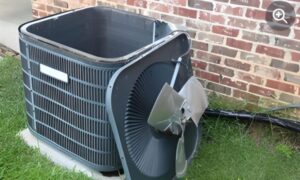In the age of heightened environmental awareness, individuals and households constantly seek ways to reduce their energy consumption. One area that has long been debated is whether it is more energy-efficient to use a dishwasher or hand wash dishes. A recent groundbreaking study has shed light on this topic, revealing the ultimate energy-saver. This article will provide an unbiased analysis of the study’s findings, presenting the facts and benefits of each method without personal bias.
By exploring water consumption, efficiency tips for using a dishwasher, and commonly asked questions about dishwasher versus hand washing, readers will gain a comprehensive understanding of the energy-saving potential of each approach. Moreover, the article will delve into the broader benefits of making a home more energy efficient, highlighting the significant impact small changes in energy use can have on monthly bills. By the end, readers will be armed with the knowledge to make an informed decision on whether to embrace the dishwasher revolution or stick with traditional hand washing methods.
Water Consumption Comparison
When comparing water consumption, it is evident that dishwashers have the potential to significantly reduce the amount of water used compared to hand washing dishes. Dishwashers with ENERGY STAR certification can use as little as 15 liters of water per load, whereas filling the average kitchen sink can take between 15 and 20 liters of water. Running the tap during hand washing can use approximately six liters of water per minute.
By using a dishwasher, water saving techniques can be implemented, resulting in lower water consumption. Furthermore, dishwashers are designed to be energy efficient in their water usage. This not only saves water but also has a positive environmental impact. Therefore, when it comes to water consumption, dishwashers prove to be a more efficient and environmentally friendly option compared to hand washing dishes.
Efficiency Tips for Using a Dishwasher
To optimize the efficiency of using a dishwasher and further reduce water consumption, implementing these tips can help maximize energy savings and ensure optimal cleaning performance. First, there is no need to pre-rinse dishes before placing them in the dishwasher. Sensors in newer dishwashers can detect food particles and determine the length of each cycle.
Additionally, using a rinsing aid and opening the dishwasher door slightly at the end of each cycle can help dry the dishes. Another tip is to skip the heated drying cycle and use the air-dry option. Lastly, it is important to position dishes according to the dishwasher manual’s instructions for optimum cleaning. These tips can debunk common myths about dishwasher efficiency and help users make the most out of their dishwasher, saving energy and water in the process.
Benefits of Making Your Home More Energy Efficient
Improving the energy efficiency of your home can result in significant cost savings and enhanced comfort. Making your home more energy efficient not only reduces your environmental impact but also has tangible benefits for your monthly bills. By taking steps to improve energy efficiency, you can qualify for various energy saving incentives that can help offset the upfront costs of upgrades.
These incentives may include rebates, tax credits, or low-interest financing options. Additionally, enhancing the energy efficiency of your home can lead to lower energy consumption, resulting in reduced monthly bills. By implementing energy-saving measures such as installing energy-efficient appliances, sealing air leaks, and improving insulation, you can create a more comfortable living environment while simultaneously reducing your energy expenses.
Other Energy Efficiency Articles
Water-efficient showerheads and faucet aerators are essential components of an energy-efficient home, providing both improved functionality and significant savings on power bills. These appliances are designed to reduce water consumption without compromising performance. When it comes to measuring energy efficiency, there are several factors to consider. One way to evaluate energy efficiency is by looking at the water consumption of different appliances.
For example, dishwashers with ENERGY STAR certification can use as little as 15 liters of water per load, while hand washing dishes can use significantly more water, especially if filling a sink full of hot water for washing. Another important aspect to consider is the overall energy consumption of the appliance. Dishwashers, especially those with energy-saving features, tend to be more energy-efficient compared to hand washing. However, it is important to weigh the pros and cons of different energy-saving appliances to determine the best option for your specific needs.
Dishwasher Vs. Hand Washing: Energy Efficiency
When comparing the energy efficiency of dishwashers and hand washing, it is evident that dishwashers offer significant advantages in terms of water and energy consumption. Dishwashers with ENERGY STAR certification can use as little as 15 liters of water per load, whereas filling the average kitchen sink can take between 15 and 20 liters of water. Additionally, running the tap for hand washing dishes uses approximately six liters of water per minute. Dishwasher usage can result in lower water consumption compared to hand washing.
In terms of energy consumption, modern ENERGY STAR certified dishwashers are designed to be energy efficient in their water usage and safety features. Therefore, using a dishwasher can be more energy-efficient than hand washing dishes for most people, making it a cheaper and environmentally friendly alternative.
How to Choose the Most Energy-Saving Option
To make an informed decision on the most energy-saving option between dishwasher usage and hand washing, it is crucial to consider factors such as water and energy consumption, as well as the efficiency features offered by modern dishwashers. Dishwashers with ENERGY STAR certification can use as little as 15 liters of water per load, while hand washing dishes can use significantly more water, especially if filling a sink full of hot water for washing.
Filling the average kitchen sink can take between 15 and 20 liters of water, and running a tap uses approximately six liters of water per minute. Therefore, dishwasher usage can result in lower water consumption compared to hand washing. Additionally, efficiency tips for using a dishwasher, such as not pre-rinsing dishes, using a rinsing aid, and skipping the heated drying cycle, can further reduce energy consumption. Overall, choosing a dishwasher is usually a more energy-efficient and cost-effective option compared to hand washing dishes.








